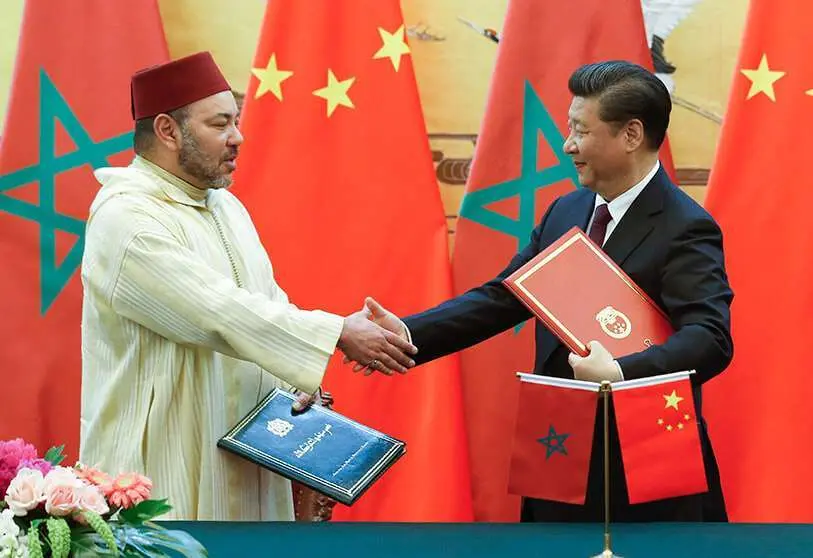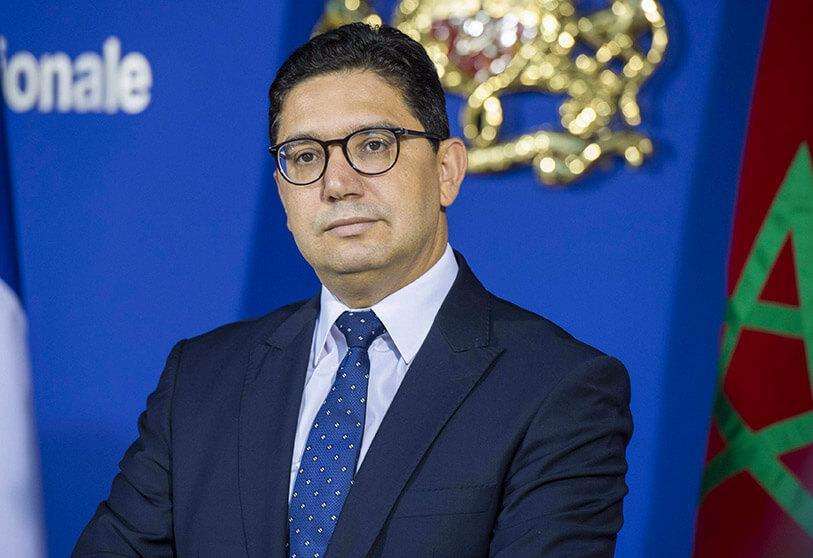China busca reforzar su presencia comercial en el Magreb

In recent years, China has sought to consolidate economic and trade alliances through the New Silk Road. Thanks to this initiative developed by President Xi Jinping, the Asian giant has managed to consolidate its presence in Central Asian and Middle Eastern countries through investments and development projects.
For example, Iraq, a country that in 2021 received a package of around 10.5 billion dollars to carry out projects related to infrastructure and power plants, has become a key pillar in the region for Beijing. It has also, through a 25-year cooperation agreement, forged closer ties with Iran. Even Israel, the United States' main ally in the region, last year opened a terminal at the port of Haifa run by China's state-owned Shanghai International Port Group (SIPG).
According to data from China's five-year plan collected by El Economista, Chinese investment in the Middle East has increased by 350%, reflecting Beijing's strong commercial and economic influence in the region.

China hopes to replicate these moves in the neighbouring Maghreb. However, due to North Africa's trade ties with the European Union, China's economic entrenchment may be slower in coming. Despite this, Beijing is already the leading trading partner of Algeria - ahead of France, Spain, Italy and the United States - Mauritania and Libya, although it ranks third in Morocco and Tunisia.
In addition to maintaining a close political relationship with Algiers, Beijing has agreed on numerous projects in different areas, such as transport infrastructure, the construction of housing and hotel complexes, as well as energy initiatives. The Algerian presidency has already announced that this cooperation will increase, which will also facilitate China's commercial and economic consolidation in the region and on the continent

China accounts for half of Mauritania's exports, making it the country's main trading partner. With the aim of maintaining good relations in this area, in early 2022 China cancelled part of its debt with the country to the tune of 22.3 million euros by signing a memorandum of understanding between the two countries, according to EFE. In addition, the two countries also cooperate in other areas. For example, in 2019, Beijing pledged to donate 6.3 million euros in military assistance to Nouakchott to fight terrorism.

However, Mauritania must also take care of its relations with France, with whom it has important cooperation to tackle terrorism in the Sahel, and with the US, which has investments in the gas sector, one of the country's most promising markets.
In the midst of the energy crisis in Europe due to the conflict between Ukraine and Russia, Nouakchott could become an alternative in this area, since a few months ago the Mauritanian Minister of Petroleum, Abdeslam uld Mohamed Saleh, announced that the country would begin producing liquefied natural gas for the first time from November or December 2023, according to EFE. In addition to US companies, European companies such as Britain's BP are also present in the country. Recent discoveries of Mauritanian gas could also increase China's attention and interest in the country.
Mauritanian LNG? The country has been overlooked in Europe's scramble for fresh gas supplies. But the continent's gas crunch is now making @BP & @KosmosEnergy look at up to 100 tcf of gross gas discoveries off Mauritania & Senegal in a new light. https://t.co/cmz53NCjK5 pic.twitter.com/Xu5DtlgvcM
— MEES (@MeesEnergy) May 20, 2022
In Libya, despite political and social instability, the Asian giant has managed to establish itself as the main commercial ally. Frederic Wehrey, an analyst at the Carnegie Endowment for International Peace think tank, notes that among the powers involved in Libya, Beijing's role is often overlooked.
"It is not sending mercenaries like Turkey or Russia, but it is constantly investing and exerting influence," he explains. After the fall of Muammar Gaddafi, China has pursued "a policy of cautious neutrality and diplomatic and economic diversification". Through this 'non-alienated' position, Beijing will be able to "promote its interests regardless of which Libyan faction wins", Wehrey notes.

However, the protests and subsequent conflicts in the country dealt a severe blow to Chinese investments in Libya. During the fighting, Chinese companies were attacked, forcing Beijing to evacuate nearly 900 workers caught up in the fighting, a Chinese official told the BBC. In total, according to figures from China's Ministry of Commerce compiled by the Middle East Institute, losses exceeded $1.5 billion during the 2011 war.
After the end of the second civil war, China rushed to devise ways for its companies to return to the country, especially those involved in oil, Libya's most attractive market and one of Beijing's main targets. As EFE points out, even in the toughest months of the war, China's Sinopec was one of the main oil companies operating in the country.

Despite China's current optimal economic outlook, its privileged commercial situation in Libya is not as secure as in Algeria or Mauritania, since, due to the war and the involvement of other countries, Libya also has a strong commercial presence from Egypt and Turkey.
Regarding other powers with interests in Libya, Wehrey recalls that for other nations such as Turkey and Russia, "Libya is a vital gateway to sub-Saharan Africa", while China, on the other hand, "has already managed to influence the area". Therefore, Beijing 'can patiently develop strategies and prioritise gains' while others struggle for influence.
In this sense, Mordechai Chaziza of the Middle East Institute also highlights the role that China can play in the reconstruction and redevelopment of Libya, since, while countries such as Russia, France or Turkey can provide "powerful military equipment", China is "one of the few nations that can provide financial and technical support to rebuild the country".

However, China still has to compete with certain European countries to gain more commercial presence in the other two Maghreb nations: Morocco and Tunisia.
The Alawite kingdom has strong trade ties with France and Spain, while Tunisia is strongly connected to France and Italy. The Asian country holds third place, although its growth with both North African countries is increasing.

With Rabat, Beijing signed the 'strategic partnership' in 2016. A year later, a memorandum of understanding and in January 2022 the joint implementation plan of the initiative, so the bilateral partnership is expected to increase this year. Although, according to figures from Morocco's Foreign Ministry bilateral trade has already grown by 50% in the last five years, from $4bn (€3.5bn) in 2016 to $6bn in 2021.
"More than 80 Chinese investment projects are being developed in Morocco," said foreign minister Nasser Bourita, according to French media outlet Le Point. These projects include port complexes and regional logistics centres.

On the other hand, as Al-Arab points out, despite Morocco's dependence on Western arms, in recent years it has begun to buy Chinese arms in order to diversify its sources. Beijing also provided Tunisia with military equipment such as machine guns, ammunition, bulletproof vests and helmets in 2015, a year in which the North African country suffered a wave of terrorist attacks.
In Tunisia, as in Rabat, trade with China is growing rapidly. According to the Arabic newspaper, Beijing has managed to overtake neighbouring countries such as Algeria and Libya over the past 18 years, suggesting that it may also soon overtake its main European partners and thus establish itself as an economic power on the entire African continent.








